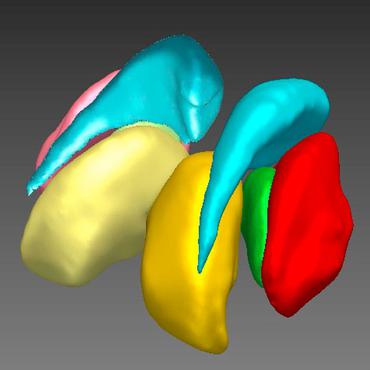Isointense Infant Brain Segmentation with a Hyper-dense Connected Convolutional Neural Network
Neonatal brain segmentation in magnetic resonance (MR) is a challenging problem due to poor image quality and low contrast between white and gray matter regions. Most existing approaches for this problem are based on multi-atlas label fusion strategies, which are time-consuming and sensitive to registration errors. As alternative to these methods, we propose a hyper-densely connected 3D convolutional neural network that employs MR-T1 and T2 images as input, which are processed independently in two separated paths. An important difference with previous densely connected networks is the use of direct connections between layers from the same and different paths. Adopting such dense connectivity helps the learning process by including deep supervision and improving gradient flow. We evaluated our approach on data from the MICCAI Grand Challenge on 6-month infant Brain MRI Segmentation (iSEG), obtaining very competitive results. Among 21 teams, our approach ranked first or second in most metrics, translating into a state-of-the-art performance.
PDF Abstract


